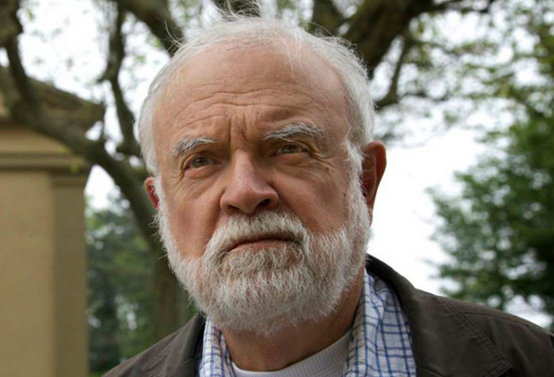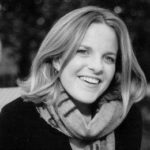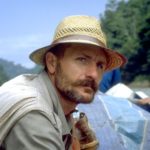John Keahey’s latest book, Seeking Sicily: A Cultural Journey Through Myth and Reality in the Heart of the Mediterranean, debuted in November of 2011. He has also authored A Sweet and Glorious Land: Revisiting the Ionian Sea
and Venice Against the Sea: A City Besieged
. John is an Idaho native who has worked in daily newspaper/wire service journalism in the American West since age 17. He now lives in Salt Lake City, Utah, and is married to Connie Disney, a book designer for a small publishing house.
How did you get started traveling?
I was in my late 30s before I began traveling internationally. My second trip, after a standard European tour a year earlier, was to Sicily for Naval Reserve training duty. I rented a car on the weekend and drove along the southern coast of the island, and when I crested a hill at Agrigento and the Valley of the Temples stood before me, it took my breath away. I started reading Italian history and the history of the Greeks in southern Italy and Sicily and was hooked. Eventually, of course, I made it to other areas of the world, principally western Europe, but I always returned to Italy.
How did you get started writing?
I’ve worked for newspapers and wire services (except for a 15-year foray into public relations) since I was 17 — that’s 34 years in daily journalism. When I had the opportunity to write my first travel narrative, about southern Italy, it came naturally, which surprised me. My second book, about Venice and its struggle with high water, was pure journalism. With No. 3, Sicily, it’s back to travel narrative — a form I feel comfortable in.
What do you consider your first “break” as a writer?
During one of my many trips to Rome, I told a friend who was living there at the time about a trip I would like to take in the south following in the footsteps of an English Victorian writer a century earlier. He said “that would make a great book.” He urged me to write a sample chapter and send it to an agent he knew in New York. I did, didn’t hear anything for a long time, and one day the agent called and said he had sold my book idea to St. Martin’s Press. It was stunning; I really didn’t expect anything to come from it. Now I am into my third book with Thomas Dunne/St. Martin’s, and I hope there will be a few more.
As a traveler and fact/story gatherer, what is your biggest challenge on the road?
My biggest obstacle is language. Learning a language does not come easy to me, unlike my daughter who is fluent in several. I struggle with Italian and am regularly involved in lessons to attain a decent level of fluency. When I do interviews with Italians/Sicilians who do not speak English, I have to hire an interpreter; I was fortunate to have an excellent interpreter from Palermo for my current book. When I’ve traveled with an English-Italian speaker, more doors are opened for me, and I have more satisfying experiences with local people who have led me on some wonderful adventures. Actually, it is embarrassing to admit to have written three books on Italy without a command of the language. I want to change that.
What is your biggest challenge in the research and writing process?
As a journalist, I’ve always believed that if you do the proper legwork, interview enough of the right people, and remain open to having your initial preconceptions shift through the process, then the story writes itself. I’ve known reporters who love doing the research but struggle with knowing when it’s time to write. My biggest challenge with the Sicily book was figuring out how to structure it. I wrote various chapters as I had experiences and then struggled with the order in which they should flow. I had an experience on the second day of my last trip that showed me how to start it, and it went from there, much to my relief.
What is your biggest challenge from a business standpoint?
Promotion has been my biggest frustration, and I know it is a frustration shared by other mid-list authors. Best-selling authors get a lot of attention, and I certainly understand why. They bring in the most sales. Overall, publishing houses invest a lot of time and money in the production process — and they do an excellent job — but when the books by lesser-known authors flow out of the bindery and into the stores, there isn’t much they allow their publicists to do in the way of promotion. The author is relied upon more and more to do his or her own promotion. It’s a reality that we all have to live with. This world is changing because of digital editions and the social-media world, and I really don’t mind being involved in all that.
Have you ever done other work to make ends meet?
I’ve written three books involving a lot of travel while holding down a day job with a major daily newspaper. Books 1 and 3 were researched on built up vacation time; a former editor allowed me two months of unpaid leave to work on book 2. Hopefully, books 4 and beyond will be without day-job interference.
What travel authors or books might you recommend and/or have influenced you?
I am a great fan of writers such as Eric Newby, Bruce Chatwin, Jan Morris, Paul Paolicelli, Ann Cornelisen, Mary Taylor Simetti, just to name a few. I would recommend Persephone’s Island, A Small Place in Italy, Dances with Luigi, The Venetian Empire, and a wonderful little book by Chatwin that has nothing to do with Italy, On the Black Hill. The early 20th century writer H.V. Morton should not be missed. His A Traveller in Southern Italy is a classic, as is George Gissing’s By the Ionian Sea, which was the book that got me started on this travel-writing adventure.
What advice and/or warnings would you give to someone who is considering going into travel writing?
Three words: Do it differently. Find a way to tell a story, describe a people, and embrace a place that is unique from other writers. Many have fallen into that clichéd trap, to offer one example, of writing about the villa they purchased in Italy and what they went through with a cast of local “characters” restoring the place. Eric Newby was one of the first to it right with A Small Place in Italy; it seldom has been done right since. And don’t forget the history of a place and a people; that puts the present in a cultural, historical context that is quite important, I believe. And that’s hard. Believe me, it’s a challenge to weave in history without it reading like a college textbook.
What is the biggest reward of life as a travel writer?
The people I have met and become long-time friends with are my biggest reward. As a journalist, I used to marvel at the access I had to people that non-journalists do not have. I could call the governor to ask questions, and he would call me back. That’s heady stuff for a 20-year-old reporter. Writing books gives me the same kind of access to people of all sorts, and nearly all have been delightful, willing to show me things, and answer all of my nosy questions. Also, I get to see wonderful places and broaden my knowledge of how and why certain groups of people have become the way they are. Whether I am writing books or just on vacations, I return to those places again and again and introduce friends and family to them.





